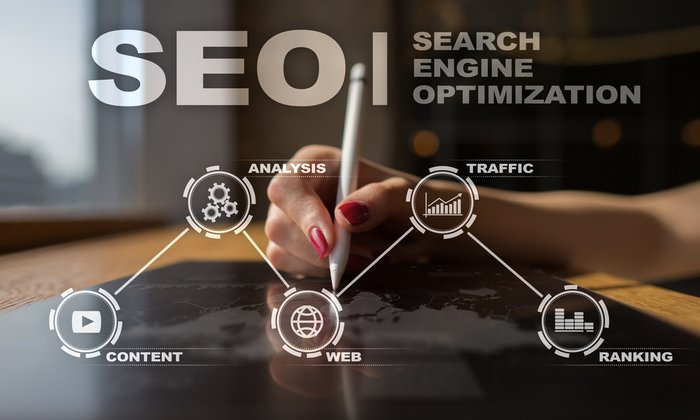
What is SEO? A Beginner’s Guide to Understanding Search Engine Optimization
In today’s digital world, having a strong online presence is crucial for businesses and individuals alike. Whether you’re running a small business, managing a blog, or simply sharing your portfolio, being easily discoverable on search engines like Google can make a huge difference. This is where SEO, or Search Engine Optimization, comes into play.
What is SEO?
SEO, or Search Engine Optimization, is the practice of improving the visibility and ranking of a website or web page in search engine results pages (SERPs). The higher your site ranks on these pages, the more likely people are to find you. Unlike paid advertising, SEO focuses on generating organic (unpaid) traffic from search engines.
At its core, SEO is about understanding what people are searching for online, the words they’re using, and the type of content they want to see. By optimizing your website around these factors, you can attract more visitors and convert them into customers.
Why is SEO Important?
Increased visibility is one of the most important benefits of SEO. With millions of websites competing for attention, SEO helps ensure your site stands out. Higher rankings mean more visibility, which can lead to increased traffic and more opportunities to engage with potential customers.
Another advantage of SEO is its cost-effectiveness. While it requires an investment of time and resources, the long-term benefits can far outweigh the costs. Once your website starts ranking well, you’ll continue to attract organic traffic without ongoing expenses.
SEO also helps build credibility and trust. Users tend to trust websites that appear at the top of search results. By optimizing your site and providing valuable content, you can build authority in your industry and establish trust with your audience.
Moreover, SEO isn’t just about pleasing search engines—it’s also about creating a better experience for your visitors. Good SEO practices, such as fast-loading pages, mobile-friendliness, and easy navigation, contribute to a better user experience, which can increase engagement and conversions.
Key Components of SEO
To understand how SEO works, it’s important to know its key components:
1. Keyword Research
Keyword research involves identifying the terms and phrases that people are using to search for information related to your business. By targeting these keywords in your content, you can attract the right audience to your site.
2. On-Page SEO
On-page SEO refers to the optimization of individual pages on your website. This includes content optimization, which involves creating high-quality, relevant content that includes targeted keywords. It also involves optimizing meta tags, such as meta titles and descriptions, to accurately reflect the content of your pages. Additionally, internal linking, which involves linking to other relevant pages on your site, helps users and search engines navigate your content.
3. Off-Page SEO
Off-page SEO focuses on building your website’s reputation and authority through external factors, such as backlinks. Acquiring links from other reputable websites to your own can significantly boost your site’s credibility and ranking. Social media engagement is also part of off-page SEO, as it can increase your site’s visibility and drive traffic.
4. Technical SEO
Technical SEO involves optimizing the backend of your website to ensure it is easily crawled and indexed by search engines. Key aspects include site speed, which ensures your website loads quickly to reduce bounce rates, mobile-friendliness, which makes sure your site is responsive and works well on mobile devices, and using HTTPS to protect your site and its visitors.
5. Local SEO
For businesses that operate locally, local SEO is essential. It involves optimizing your online presence to attract local customers. Key strategies include creating and optimizing your business profile on Google My Business, and ensuring your business information is consistent across all online directories.
The Continuous Nature of SEO
SEO is not a one-time effort but an ongoing process. Search engines regularly update their algorithms, and competitors are always vying for top spots. This means that to maintain and improve your rankings, you need to regularly update your content, monitor your website’s performance, and adapt to changes in the SEO landscape.
Conclusion
In conclusion, SEO is a powerful tool that can help you increase your online visibility, attract more visitors, and grow your business. By understanding the basics of SEO and implementing best practices, you can create a strong foundation for your website and ensure that it remains competitive in today’s digital marketplace.
Whether you’re just getting started or looking to improve your existing efforts, investing in SEO is a smart move that can pay off in the long run.






